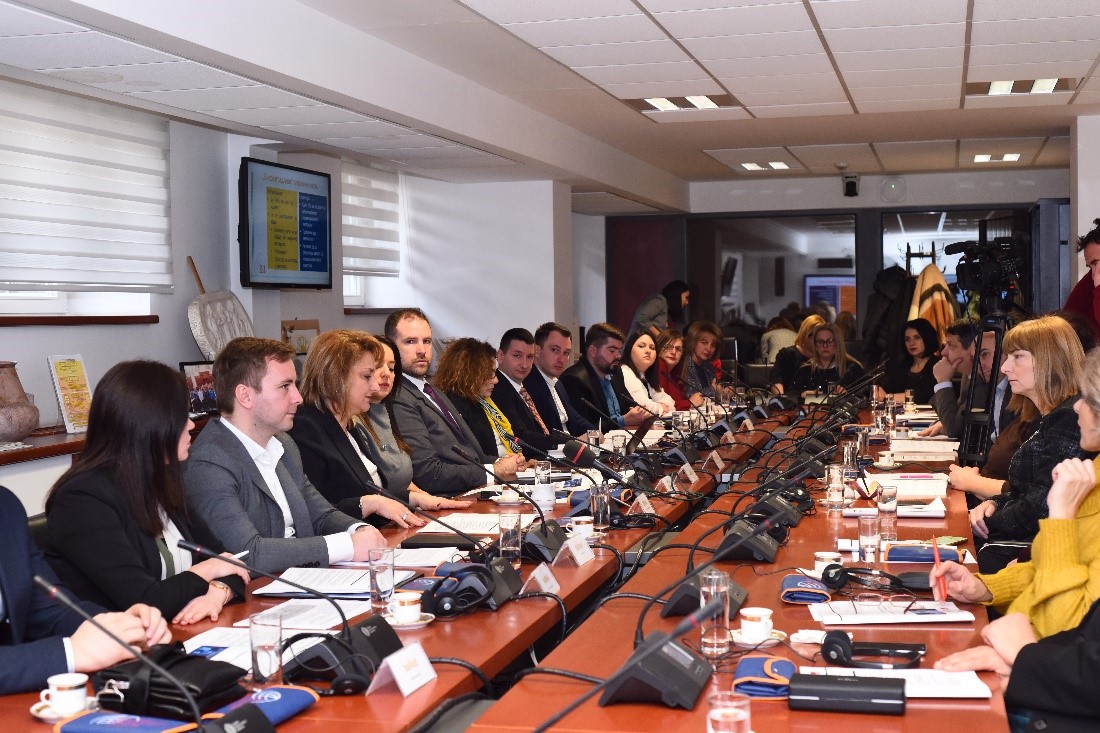
North Macedonia is the newest member of NATO and hopes to one day join the European Union (EU) – provided the country meets the benchmarks required for accession. With help from the International Republican Institute (IRI), representatives of the country’s major parties came together to present a joint environmental policy study to a group of parliamentarians. By putting the expertise of their newly established research centers over party politics, these parties are finding common ground and preparing North Macedonia to align with the EU’s environmental regulations — a step forward in helping to bring hopes of EU accession to fruition and cementing North Macedonia’s democratic development.
According to a recent nationwide IRI poll of North Macedonia, some 80 percent of Macedonians support the country becoming a member of the European Union (EU) and finally this March, after 15 years of having candidate status, the country received the green light for the opening of accession talks. In order to achieve this aspiration, this young democracy’s political parties will need to come together to work on joint policies.
IRI is committed to helping North Macedonia fulfill its democratic potential through cross-party cooperation. On February 10, IRI facilitated a presentation of a joint policy study on preserving the environment through reducing the use of plastic bags, an initiative led by the research centers of the country’s four major political parties, the Social Democratic Party of Macedonia (SDSM), the Internal Macedonian Revolutionary Organization – Democratic Party for Macedonian National Unity (VMRO-DPMNE), the Democratic Union for Integration (DUI) and Movement BESA.
The research centers represent separate divisions of the country’s political parties, and are tasked with fostering evidence-based debate within the party, policy research and assessment, analytics, public opinion research, and interparty and international cooperation. Although they were established by a law enacted in 2013 and were modeled on internal party think tanks as they exist in other European countries, they only became operational after five years, in 2018.
With the support of the National Endowment for Democracy, IRI has equipped these research centers with the tools needed to become valuable resources for the parties. The joint policy proposal to reduce the usage of plastic bags came out of the policy analysis training organized by IRI, where each party drafted viable measures to decrease of the use of plastic bags, structured into several policy areas. Later, with the facilitation of IRI, 54 representatives of the four parties and civil society organizations participated in a joint workshop.
This incredible display of interparty coordination proved to be productive. The representatives discussed the proposed measures and prioritized the best measures to be included in the policy proposal. The measures span from increasing the price of plastic bags, introducing additional taxes, raising awareness of the destructive influence of plastic bags through educational campaigns, and even a total ban on the production and use of plastic bags.
Fourteen of the 120 members of Parliament attended the presentation, representing both the ruling and opposition parties. They showed interest and were keen to discuss and add to the proposed policies. Apart from the MPs, the Deputy Minister for Environment Jani Makraduli also attended the presentation and praised both the work of the parties and the preparedness to find common ground for issues that impact every citizen.
As North Macedonia prepares for parliamentary elections in the middle of July, both parties have indicated their intention to continue their cooperation on this issue when a new parliament convenes. Cross-party support for this type of legislative proposal would certainly signal unity and partnership between four strikingly different parties and put North Macedonia in a stronger position to join the EU.
Top